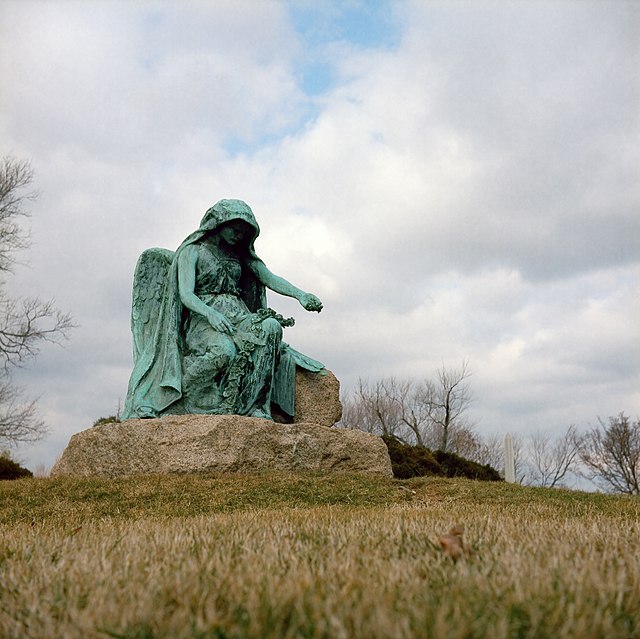Clotho or Klotho, is a mythological figure. She is the youngest goddess of the Three Fates or Moirai. In ancient Greek mythology, she spins the thread of human life, her sisters draw out (Lachesis) and cut (Atropos) the thread. Her Roman equivalent is Nona. She also made major decisions, such as when a person was born, thus in effect controlling people's lives. This power enabled her not only to choose who was born, but also to decide when deities or mortals were to be saved or put to death. For example, Clotho resurrected Pelops when his father killed him.
Statue in Druid Ridge Cemetery, near Baltimore, Maryland, that represents the Greek fate Clotho
The Triumph of Death, or The Three Fates. Flemish tapestry (probably Brussels, ca. 1510–1520). Victoria and Albert Museum, London
In ancient Greek religion and mythology, the Moirai often known in English as the Fates—were the personifications of destiny. They were three sisters: Clotho, Lachesis, and Atropos. Their Roman equivalent is the Parcae.
Late second-century Greek mosaic from the House of Theseus (at Paphos Archaeological Park, Cyprus), showing the three Moirai: Klotho, Lachesis, and Atropos, standing behind Peleus and Thetis, the parents of Achilles
The Three Fates, tondo by Hans Vischer, c. 1530 (Kunstgewerbemuseum Berlin)
The Norns spin the threads of fate at the foot of Yggdrasil, the tree of the world.
A section of the Egyptian Book of the Dead written on papyrus showing the "Weighing of the Heart" in the Duat using the feather of Maat as the measure in balance.






